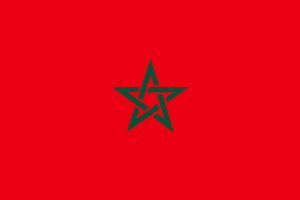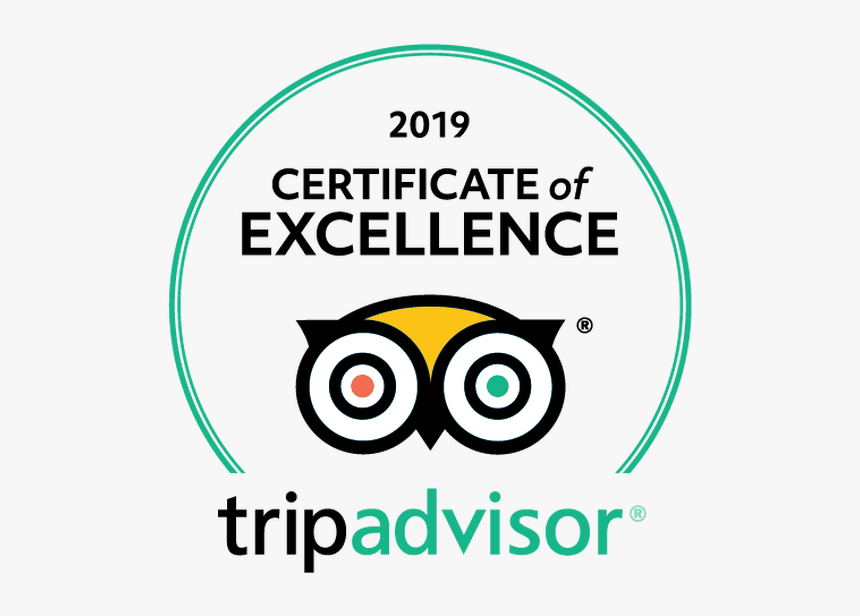Moroccan Adventures Festivals and holidays
Moroccan Activities observes international, national, and religious holidays. Because the majority of the country’s residents are Muslims, the latter is held in high regard. Religious holidays are celebrated pompously in conformity with Shariah canons. The holy month of Ramadan is one of the most important. During this period, believers fast: no drinking, eating, smoking, or chewing gum from sunrise to sunset, and no bathing. Ramadan is observed according to the lunar Islamic calendar, hence its timing varies. The Islamic New Year, Prophet Mohammed’s birthday, Uraza Bayram, and Kurban Bayram are all celebrated in grand style.
Secular national holidays and festivals draw more attention from travelers. They are available in a variety of scales, including city, national, and international.
Agadir
The Timitar Folk Music Festival is well-known in the most popular resort. It is held in July and celebrates the indigenous Berber music culture. Ethnic melodies blend with the current rhythms of DJs, rap, hip-hop, and jazz under the open sky. The event will feature the biggest stars from the Arab and African scenes.
Marrakech features a folk arts festival every July. The holiday’s plot is reminiscent of an Asian fairy tale. There will be circus acts, folklore shows, dances and music, fakir fire shows, and storytelling competitions, all of which are completely free.
Fez
Is well-known for its holy music festival. It takes place every year between May and June. Famous artists from religious communities in the Middle East, Asia, and the West perform during the event. Performances are held at Fez‘s palaces or amid the ruins of Volubilis, a Roman city.
If you wish to immerse yourself in Moroccan culture and activities, you should pay attention to the mousses, or traditional religious events. This is how the villagers celebrate the end of the harvest or any event in the community. There are honey harvest mousses, dates, cherries, and involved mousses in Morocco Activities. The ceremony must involve the hajj as well as folklore acts such as jigs, fairs, and dances.
Moroccan cooking
Moroccan Activities cuisine is diverse and combines recipes from numerous civilizations, including Mediterranean, Arabic, Jewish, and Berber. The majority of the hot dishes are made using chicken, lamb, veggies, fish, and the freshest seafood. Served alongside porridge and cold cuts. Spices are a distinguishing component of Moroccan Activities cuisine. They are used to enhance the flavor of all dishes.
What should you try in Morocco?
Moroccan fruit
Consider fruit if you’re watching your weight or just want a snack. The citrus fruits are, of obviously, the highlight of Moroccan Activities. Lemons, oranges, and tangerines. It’s no surprise, given that they’re grown right here. On the stalls, you’ll discover melons, watermelons, oranges, figs, peaches, agave, and dates.
Drinks
Try classic green tea with mint and sugar to relieve your thirst. It is available everywhere. It’s energizing and perfect for quenching thirst.
Moroccans also enjoy coffee, which is made in a unique manner. It’s really potent and energizing. Spices such as cardamom, cloves, aniseed, and a variety of peppers are added, as with any cuisine. Coffee is a connoisseur’s specialty, but you should give it a shot if you want it to live up to your expectations.
Remember that Morocco is a Muslim country when it comes to drinking. They are opposed to alcohol, especially during the holy month of Ramadan. So, if you want to drink, don’t brag about it. We propose pre-purchasing alcohol duty-free or sampling locally produced wines. Winemaking techniques have been passed down from the French and Spaniards. Foreign alcoholic beverages are easily counterfeited.
Where is the finest site in Morocco to exchange currency?
Transactions in Morocco are officially permitted only in Moroccan dirhams, according to the legislation. One dirham is roughly equivalent to seven rubles. Banknotes and centime coins are also in circulation. There is no reason to travel to Morocco with rubles.
Money can be exchanged in Morocco at a hotel, exchange office, or bank. Do not be concerned; the rate is uniform across the board because it is strictly regulated at the state level. However, trading currencies on the illegal market is not worth the risk of attracting the attention of law enforcement officers.
IMPORTANT: If you still have Moroccan Activities dirhams, exchange them for dollars and euros. Taking national currency out of the country is against the law.
All large hotels and department stores accept Visa, Mastercard, and American Express for the convenience of tourists.
Shopping
What should I bring from Morocco?
There are many possibilities! It all depends on your budget and how much space you have in your suitcase.
Interior Decoration
Moroccan Traditions Activities Ceramics are appealing due to their uniqueness and handmade worth. There is a wide range of ceramics available, but miniature tagines, painted plates, and saucepans are the most popular among tourists.
Berber rugs will bring authenticity to your space while also reminding you of the African country. Moroccan carpets are created from raw camel or sheep wool. Berber carpets are distinguished by their vibrant colors and floral/geometric designs. They are available in the markets of Medina, Rabat, and Ouarzazate.
If you don’t require a rug but enjoy eclectic decor, we recommend Moroccan bedspreads. They also add to the coziness of the home and keep you warm in cold times.
Moroccan traditional activities will be illuminated by traditional lamps in your home. There are lamps for every taste and color in the souvenir shops, but those that cast openwork shadows are especially magnificent.
African masks and sculptures, teapots, thuja objects, and mirrors can also be purchased as Moroccan souvenirs.
Slippers
Slippers with a pointed toe and no butt are available in a variety of colors and shapes. They are not only exceedingly comfy, but also very attractive. Beaded and embroidered design. For home, we recommend picking a model with a soft leather sole.
Organic Cosmetics
Moroccan activities’ greatest cosmetics will delight you with their diverse range and natural composition. Argan oil, which has many beneficial characteristics, is a calling card. Because the product is not cheap, there are many counterfeits. Argan oil should not be purchased from street vendors or supermarkets. The original should be purchased from a specialized store; the price here will be around 600 dirhams per liter.
Pay attention to the glycerin soap with natural extracts, the Moroccan Hamam set, and fragrant ingredients in the shape of dry cubes (musk, ambergris, jasmine, sandalwood, rose).
Spices
Aromatic spices make an excellent gift for yourself or a loved one. Spices offer a spicy kick to foods while also reminding you of the vibrant African culture. Popular spices in the country include cumin, paprika, cinnamon, ginger, and saffron.
Coffee or green tea
After visiting Morocco, you will long for the local green tea with mint. That is why we recommend purchasing tea for making homemade tea. In souvenir shops and supermarkets, green tea is sold in cubed boxes. If you enjoy spiced coffee, we propose purchasing ground coffee with the spices Asta épicé, which fits all of the flavor standards of authentic Maghreb coffee. Available at any Moroccan activities supermarket.
Sweets
Oriental sweets are a great way to spoil yourself and your loved ones. Cookies, halva, and the famed baklava with honey and almonds are available.
What are you unable to do in Morocco?
Taking photographs of locals
It is considered impolite to photograph Moroccans without their permission. Artists, snake charmers, and magicians are exceptions, but they are more likely to charge a fee. However, it is illegal to photograph police officers and troops in the country.
Insult local religion and traditions
Morocco is a Muslim country, therefore please be respectful of other religions. Smirks and jokes should be kept to yourself unless you want to be beaten or arrested. Mosques can be visited for free.
In Morocco, unlike Turkey, only Muslims are permitted to attend mosques. The Hassan II Mosque, on the other hand, is open to the public.
Using tap water
Because the water quality is dubious, we strongly advise drinking only bottled water. removing dirhams from the country
If you still have Moroccan dirhams, convert them to dollars or euros. Taking national currency out of the country is against the law.
What is the best way to travel in Morocco?
Cab drivers in Morocco
Take a cab if you like comfort. Cabs in Morocco, by the way, are used by the locals since they are inexpensive. The price is determined by the meter, although you can bargain. A city journey costs about 40 dirhams, while a taxi ride from the airport to the city costs about 250 dirhams on average.
In Morocco, there are two types of taxis. The first is the petite taxi, which can transport up to three persons throughout the city. The large cab, which can seat more than three persons, is used for long-distance trips.
Take only yellow cabs for your own safety.
Car hire in Morocco
Renting a car is, of course, the best way to tour Morocco and move around freely. Car rentals are available at the airport, hotels, and resort areas. Avis, Herz, Sixt, and other well-known international vehicle rental businesses are recommended. Car hire with air conditioning costs 500-1000 Moroccan dirhams per day.
IMPORTANT: Be cautious on the roads: local drivers do not always observe European traffic laws. Do not drive while inebriated in Morocco; the fines are severe, and the police are uncorruptible.
Buses
The bus’s greatest advantage is its low cost. Ticket costs range between 30 and 90 dirhams. Generally, city buses are constantly packed. Voting is not possible because buses only stop at defined stops.
Intercity buses are ideal for longer trips.
Railway transportation
If you want to visit cities in Morocco, the train is a better option than the bus. Morocco’s train service is outstanding, with three levels of comfort available to passengers: ordinary, comfortable, and comfortable high-speed trains. Air conditioning, buffets, and bars are available aboard long-distance trains. Ticket prices range from 40 to 150 dirhams depending on distance.
Water transportation
Moroccan Activities is close to the Strait of Gibraltar, thus there is good sea travel to Spain. Ferry travel will cost 30 euros. When purchasing a ticket, you must present a Schengen visa.
Morocco Accommodation
Morocco hotels
Hotels of various sorts can be found in Morocco. When selecting a hotel, keep in mind that stardom does not always match to reality. Most hotels were created decades ago and cannot boast of outstanding service or room inventory. However, as in Tunisia, thalassotherapy centers are available in good hotels. Tourists come here not for the hotel, but for the spectacular coast and color.
Also, because hotels do not have an all-inclusive system, the food system frequently consists of merely a European-style breakfast.
Moroccan communication
For speedier communication, you can get a SIM card, which costs between 30 and 50 dirhams depending on the tariff plan. Maroc Telecom, Orange, and INWI are the three largest mobile operators in the country.
What about wireless Internet?
Hotels offer both free and paid Wi-Fi. In addition, the wireless network is operational in several Moroccan cafes, restaurants, and spas.



